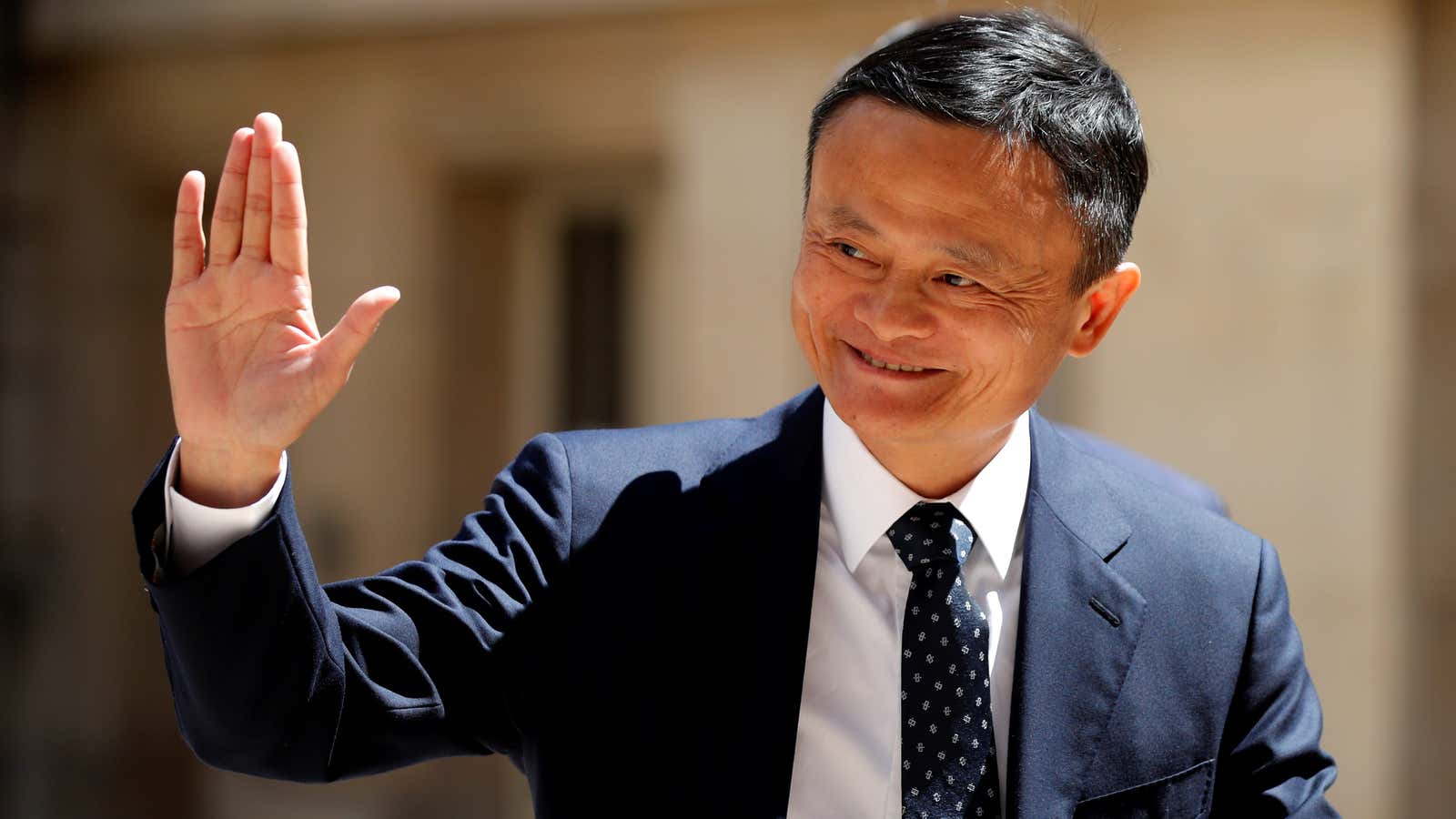China’s e-commerce giant is mulling a secondary blockbuster listing on the Hong Kong stock exchange as early as by the end of this year, five years after its record $25 billion float in New York, according to Bloomberg.
The move doesn’t come as a complete surprise. Jack Ma, Alibaba’s executive chairman and co-founder, had said last year that he would “definitely consider Hong Kong’s market” and “enhance our participation” in the city’s economy.
A second listing in Hong Kong “is more a homecoming than a fundraising,” wrote Bloomberg Intelligence analysts Vey-Sern Ling and Tiffany Tam, noting the company has ample cash, but that the move would bring the company closer to China-based funds. The company had previously listed its online unit, Alibaba.com, in Hong Kong before delisting in 2012 ahead of its US IPO in 2014. Alibaba declined to comment on the possible listing to Bloomberg.
Still, the move would help fill the company’s war chest amid fierce competition from rivals—in particular, food delivery firm Meituan Dianping, backed by social media giant Tencent—and as China’s economic growth slows amid an intensifying trade war with the US.
Hong Kong lost out on Alibaba’s IPO when the company spurned the Asian financial hub in favor of the Big Apple, in large part because the city’s stock exchange refused to change its rules to allow dual-class shares, which give certain shareholders greater voting rights instead of adhering to a strict “one share, one vote” principle.
Smarting from the pain of Alibaba’s rejection, Hong Kong approved dual-class shares in April 2018, and has since attracted major IPOs by smartphone maker Xiaomi and delivery firm Meituan Dianping, which ranked as the third- and seventh-largest offerings worldwide last year.
The direction of US-China relations this year could shape Alibaba’s final plans. Last week, China’s largest chipmaker, SMIC, suddenly announced that it would be delisting from the New York stock exchange, citing low trade volumes and high costs as effects of the US-China trade war reverberate across the technology sector.
